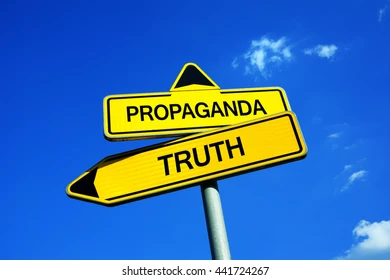
Media Trust Crisis : Politics and the Battle Over Truth
IndependentReport – In an era where every opinion can be published instantly, the media trust crisis politics truth issue has become one of the most urgent challenges in modern democracy. People around the world are losing faith in the information they consume. The rise of digital platforms has blurred the line between journalism and propaganda, creating an environment where truth is often overshadowed by emotion, bias, and agenda. The media trust crisis politics truth discussion is no longer about which side is right but about whether anyone can still be trusted at all.
Traditional journalism once stood as the guardian of facts, but today, the media trust crisis politics truth landscape tells a different story. As news outlets chase clicks and engagement, the boundary between reporting and opinion has thinned. The political divide deepens when audiences only consume information that confirms their worldview. The media trust politics truth problem emerges when algorithms reward outrage rather than accuracy, amplifying sensationalism over substance. This erosion of credibility doesn’t just weaken journalism it endangers democracy itself.
Political leaders have mastered the art of shaping public perception. In the media trust crisis politics truth era, every political figure weaponizes narrative control. Politicians accuse journalists of bias, while journalists expose corruption, creating a feedback loop of distrust. As polarization spreads, news consumers find themselves trapped between loyalty and logic. The media trust politics truth conversation intensifies as both sides accuse the other of manipulating the truth for personal or ideological gain.
Social media platforms transformed how people engage with information, yet they also accelerated the media trust politics truth phenomenon. Posts go viral not because they’re accurate, but because they’re emotional or controversial. Platforms like X, Facebook, and TikTok have become political battlegrounds where misinformation travels faster than verified facts. The media trust politics truth dilemma expands as algorithms learn that anger generates more clicks than reason, leaving users stuck in echo chambers that reinforce their biases.
Amid skepticism toward mainstream outlets, alternative voices have emerged. While some bring valuable perspectives, others deepen the media trust crisis politics truth tension by spreading unverified information. Citizen journalism can be empowering, but without editorial oversight, it often blurs into opinion or conspiracy. In this fragmented landscape, the media trust politics truth narrative thrives, with audiences uncertain about what sources to believe and which ones to ignore.
Fact-checking organizations try to restore integrity, yet their efforts also face criticism. In the media trust crisis politics truth environment, even verified data becomes politicized. When audiences distrust the checkers as much as the newsmakers, credibility collapses. The media trust politics truth issue highlights how perception now matters more than evidence. People no longer ask whether something is true but whether it aligns with what they already believe.
Behind every headline lies an industry fighting for survival. Advertising revenue dictates what gets covered, and controversy sells better than calm reporting. In this way, the media trust crisis politics truth dynamic becomes not just ideological but economic. Outlets rely on audience engagement, even if that means amplifying division. The media trust crisis politics truth pattern continues because outrage drives profit, while moderation rarely trends.
Governments worldwide have recognized the power of the media trust crisis politics truth environment. Some exploit public doubt to discredit critical journalism. Others impose censorship under the pretext of combating fake news. When institutions use misinformation laws as weapons, the media trust politics truth conflict shifts from public confusion to deliberate control. It becomes less about misinformation itself and more about who gets to define what truth actually means.
Rebuilding trust requires transparency, accountability, and education. Newsrooms must show how stories are researched, how sources are verified, and how corrections are made. Citizens, too, must learn media literacy to navigate the media trust crisis politics truth environment with discernment. The future of journalism depends on readers who can separate fact from fiction. In the long run, the media trust crisis politics truth challenge offers an opportunity: to rebuild a more responsible, transparent, and participatory information ecosystem.
The world’s democracies depend on a free press, but freedom without credibility is fragile. The media trust politics truth struggle will not vanish overnight, yet awareness is the first step toward reform. Journalists, policymakers, and audiences share equal responsibility in shaping the media of tomorrow. Only through collective honesty and open dialogue can societies overcome the media trust crisis politics truth divide and reclaim the power of truth itself.